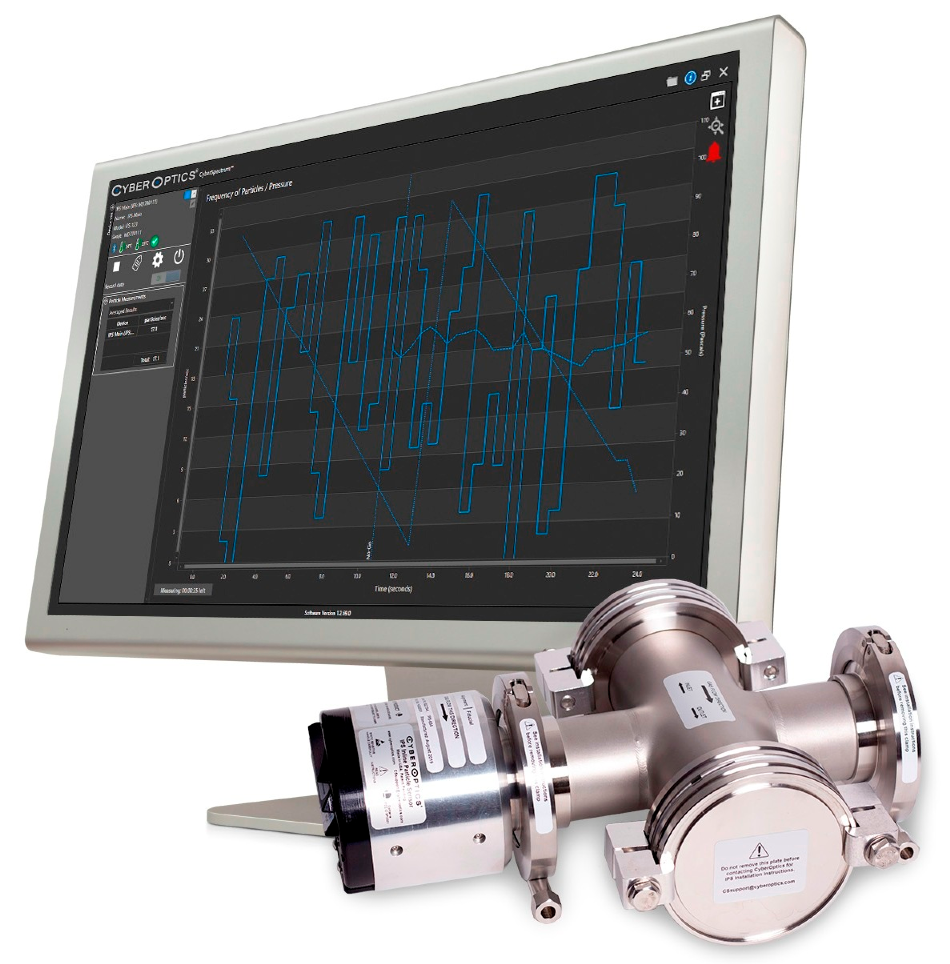CyberOptics® Corporation, a leading global developer and manufacturer of high-precision 3D sensing technology solutions, will exhibit at SPIE Advanced Lithography from February 25-26, 2020 at the San Jose Convention Center in California, booth #308. During the show, the company will introduce its new In-Line Particle Sensor (IPS) with CyberSpectrum™ software for semiconductor tool set-up and equipment diagnostics.

An extension of the industry-leading WaferSense® and ReticleSense® Airborne Particle Sensor (APS) technology that is documented by fabs as the Best Known Method (BKM), the new In-Line Particle Sensor (IPS) with CyberSpectrum software detects particles in gas and vacuum lines 24/7 in semiconductor process equipment. The IPS quickly identifies, monitors and enables troubleshooting of particles down to 0.1 µm.
The IPS can be installed in any gas or vacuum system, and is particularly relevant for EUVL tools where the ability to monitor particles in-line can significantly improve EUVL tool yield and productivity. For example, it can be installed at the vacuum line in between the EUV process chamber and the vacuum pump, saving significant time compared to current methods of sending a monitor dummy reticle into the EUV system to check for particles before and after sending the reticle into the EUVL. The IPS is always on and collecting particle data, which is especially critical during chamber purging.
“We have incorporated our proprietary airborne particle sensing technology into an in-line form factor,” said Dr. Subodh Kulkarni, President and CEO, CyberOptics, “The IPS delivers the same benefits fabs worldwide have recognized with this proven technology. It can significantly save time and expense while improving yields and productivity.”
Process and equipment engineers in semiconductor fabs can speed equipment qualification with real-time, 24-7 monitoring, compare past and present data, as well as one tool to another. Contamination sources can be identified quickly and the effects of cleaning, adjustments and repairs can be seen in real-time. Fabs can shorten equipment maintenance cycles, lower equipment expenses and optimize preventative maintenance plans.
CyberOptics will also demonstrate the ReticleSense Airborne Particle Sensor (APSRQ) and the ReticleSense Auto Multi Sensor (AMSR) for wireless leveling, vibration, and relative humidity (RH) measurements.